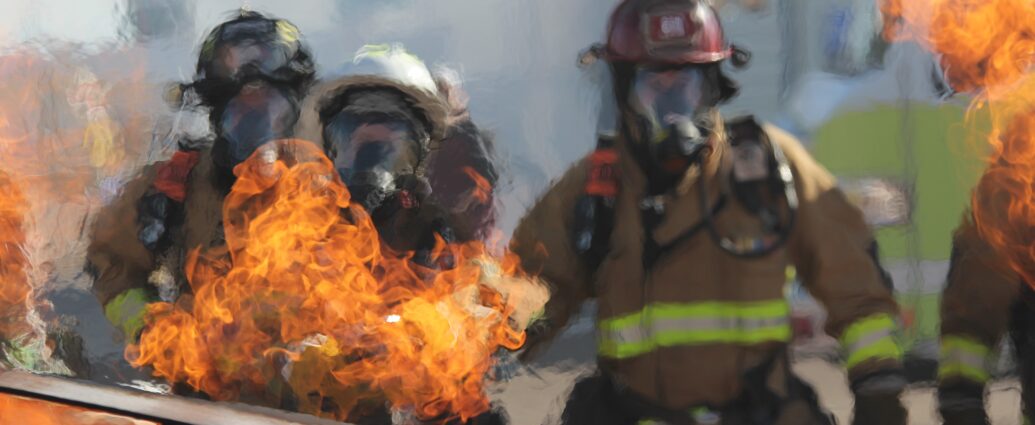Ciara Lane
TW: Racial, gender, religious and sexual orientation discrimination
A recently released Independent Culture Review of the London Fire Brigade has found toxic elements within the institution, including harmful and abusive discrimination against marginalised groups.
The review was commissioned after the tragic death of firefighter Jaden Matthew Francois-Esprit, who took his own life in 2020. According to the report, Jaden’s family were concerned that he had been bullied because of his race.
The report identifies that while Jaden’s death provoked the review, cultural problems have persisted within the London Fire Brigade, with previous efforts to address these proving unsuccessful.
Nazir Afzal OBE was appointed Chair of the review, meaning it was conducted, according to LFB, by one of the country’s most senior lawyers, who had also been Chief Executive of the Association of Police & Crime Commissioners.
DAMNING FINDINGS
The comprehensive examination collected feedback from more than 2,000 current and former members of staff, in the hopes of improving the poor culture of the institution.
“in many incidents, the term ‘banter’ was used frequently to justify abuse”
Marginalised groups including black, Asian and minority ethnic, LGBTQ+, women and neurodiverse staff were found to experience ill treatment, and do not do as well in their careers in the institution – with the senior leadership team predominantly comprised of white men.
The report discovered that in many incidents, the term ‘banter’ was used frequently to justify abuse and ‘othering’. Examples included mocking people’s religion, taking bets on who would be the first person to sleep with a woman and filling colleagues’ helmets with urine.
Senior figures told those conducting the review that some firefighters saw others as a threat to their role. The profession appears to have become an emblem of white masculinity, with the perpetrators of discrimination threatened by the increase of ethnic minorities and women entering the institution.
Individual accounts of racist bullying include a black firefighter having had a noose put above his locker, while a Muslim firefighter was repeatedly bullied for his religion, and had a terrorist hotline sign posted on his locker.
Despite this, evidence also found that people of colour were disproportionately subject to disciplinary action.
Countless reports from female employees exposed the established misogynistic culture, with women being groped and subject to ‘banter’ in the form of daily sexist abuse. Some even reported being punched and attacked.
Meanwhile, LGBTQ+ employees were shunned because they were seen as a threat, and were stereotyped as predatory because of their sexuality.
DANGEROUS IMPLICATIONS
The implications of already marginalised groups experiencing bullying and harassment within the London Fire Brigade are that individuals will be dissuaded from pursuing a vital career that they are passionate about and which serves the interests of the public.
“Without respect, it makes the job impossible.”
The dismal number of 425 women and more than 500 ethnic minority firefighters is evidence of this discrimination forming a barrier around the profession.
The lack of respect and trust between the perpetrators and victims of discrimination could be catastrophic in life-threatening circumstances. One female firefighter interviewed for the review stated that “you have to rely on them to get out safely and how can you do that when you know they think so little of you and treat you like dirt all the time? Without respect, it makes the job impossible.”
Not only will these marginalised groups feel discouraged from entering the profession, but this could result in distrust in the service from members of the public who depend on it in dangerous situations.
THE LONDON FIRE BRIGADE’S NEXT STEPS
The LFB claims to be taking immediate steps to end discrimination, harassment and bullying within the service, following Nazir Afzal OBE’s recommendations. An independent audit committee will be created to measure the progress.
This will involve a zero-tolerance approach, where anyone accused of discriminatory behaviour will be suspended immediately and dismissed if found to be guilty. An external complaints investigation service is being introduced, enabling staff to speak out against poor behaviour.
The brigade is also making a permanent shift in its approach to leadership, stating that leaders who do not value transparency, accountability and fairness will no longer have a place in the Brigade.
The use of body cameras has been recommended to ensure respect is shown to the public at all times, and encourages members of the public to report any poor behaviour that they encounter.
For these improvements to come to fruition, rather than fail as they have previously, those in leadership positions must include those from marginalised groups whom employees will feel comfortable sharing their concerns with, and feel protected by.
Reports of discrimination and bullying must be handled as the Brigade has set out, with victims truly acknowledged and perpetrators effectively dismissed if they cannot respect their colleagues’ existence within the workplace.
This abysmal culture must be extinguished to prevent further distress and loss of promising individuals.
Featured image courtesy of Matt C via Unsplash. Image licence found here. No changes have been made to this image.

